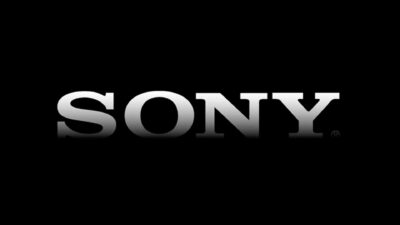 With the writers strike in its seventh week, there are signs of change on a number of fronts — and these changes may ratchet up the pressure on the Writers Guild of America to reach a settlement. The latenight talkshows are returning to production, marking a subtle but important shift from the period, weeks ago, when the shows’ hosts were delivering donuts as a sign of solidarity. “Jimmy Kimmel Live” announced Tuesday that it plans to return Jan. 2, while “Late Show With David Letterman” and “The Late Late Show With Craig Ferguson” are expected to do the same, with or without an interim agreement from the WGA.
With the writers strike in its seventh week, there are signs of change on a number of fronts — and these changes may ratchet up the pressure on the Writers Guild of America to reach a settlement. The latenight talkshows are returning to production, marking a subtle but important shift from the period, weeks ago, when the shows’ hosts were delivering donuts as a sign of solidarity. “Jimmy Kimmel Live” announced Tuesday that it plans to return Jan. 2, while “Late Show With David Letterman” and “The Late Late Show With Craig Ferguson” are expected to do the same, with or without an interim agreement from the WGA.
More crucially, the Directors Guild of America is finalizing its own terms for talks with the companies — and their proposals are all bottom-line facts and figures, with no inclusion of ideological issues such as reality TV and animation. The DGA’s spent nearly $2 million on research and consultants to provide the guidelines on how the new-media sector’s going to be monetized and how to pay creatives from those revenues.
The DGA team is hopeful that its numbers are viable enough for a deal. Although 300 Directors Guild members — many of them writers — asked the DGA to hold off on starting talks, the helmers may have partly defused that resentment by offering to share their info with the WGA, making the DGA seem more like helpmates and less like buttinskys.
The DGA hasn’t yet set a date for starting talks with the majors, but it’s widely expected to launch negotiations early next year, assuming the WGA isn’t able to make a deal by the end of the month. The WGA’s talks with the Alliance of Motion Picture & Television Producers imploded Dec. 7 after the AMPTP demanded that the scribes remove half a dozen proposals from the table, and the WGA refused.
The DGA’s current deal expires June 30. In previous contracts, it had already concluded negotiations at this stage, but it’s held off starting talks due to the strike.
At this point, even the WGA’s opponents give credit to the scribe leaders for scoring PR points and public sympathy in conducting the strike.
On Tuesday, for example, the WGA delivered mock indictments of the AMPTP in Encino and New York, alleging conspiracies to steal the Internet and conduct “meaningless negotiations with depraved indifference to the truth and with malice and mendacity aforethought.” As usual, both events received strong support from thesps, with Chris Noth, B.D. Wong, Edie Falco, Eric Bogosian, Mariska Hargitay and Linus Roache showing up in Gotham and Marg Helgenberger and Regina Taylor in Los Angeles.
Still, if the DGA can make a deal with some dispatch, it would immediately raise questions as to why the WGA could not have done the same.

At Monday night’s member meeting in Santa Monica, WGA officers and negotiating committee members received standing ovations and little criticism from the 2,000 members in attendance. And WGA leaders indicated at the meeting that they won’t automatically accept the terms of a deal the DGA reaches — even though moguls have already asserted they won’t give the writers a better deal than the directors.
But the WGA is also aware of the PR image issue: As the strike continues, more of their members and below-the-line workers are losing money. And the WGA is now facing a backlash over its awards-season decisions to picket the Jan. 13 Golden Globes, deny a waiver for the use of clips at the Oscarcast and preemptively deny any request from AMPAS for a waiver for writing on the show.
Though many in town lightly mock Hollywood’s awards obsession, those evenings are also seen as a celebration of good work, leading many to question the wisdom of using kudos as a contract battleground.
[Via Variety]

Frank Wilson is a retired teacher with over 30 years of combined experience in the education, small business technology, and real estate business. He now blogs as a hobby and spends most days tinkering with old computers. Wilson is passionate about tech, enjoys fishing, and loves drinking beer.















